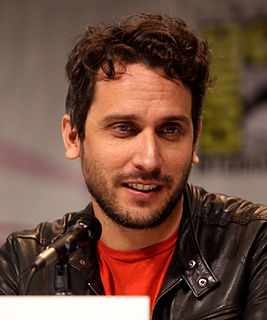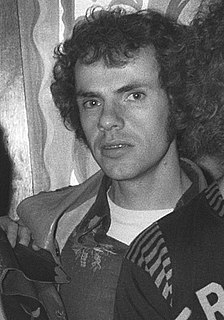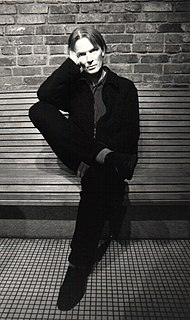A Quote by Fede Alvarez
I think violence in movies, for it to work, you have to use it smartly. People get numb very fast. If you have too much violence in the beginning, it gets to a point where you don't feel it.
Related Quotes
I'm so sick of seeing guns in movies, and all this violence; and if there was going to be violence in Pines, I wanted it to actually be narrative violence. I wasn't interested in fetishizing violence in any way of making it feel cool or slow-motion violence. I wanted it to be just violence that affected the story.
Violence is not merely killing another. It is violence when we use a sharp word, when we make a gesture to brush away a person, when we obey because there is fear. So violence isn't merely organized butchery in the name of God, in the name of society or country. Violence is much more subtle, much deeper, and we are inquiring into the very depths of violence.
Hopefully we'll get to a point where there are absolutely no restrictions on any kind of violence in movies. I'd love to see us get to a point where you can go to theaters and see movies unrated and that people know its not real violence. It's all pretend. It's all fake. It's just acting. It's just magic tricks.
My approach to violence is that if it's pertinent, if that's the kind of movie you're making, then it has a purposeI think there's a natural system in your own head about how much violence the scene warrants. It's not an intellectual process, it's an instinctive process. I like to think it's not violence for the sake of violence and in this particular film, it's actually violence for the annihilation of violence.
...people think non-violence is really weak and non-militant. These are misconceptions that people have because they don't understand what non-violence means. Non-violence takes more guts, if I can put it bluntly, than violence. Most violent acts are accomplished by getting the opponent off guard, and it doesn't take that much character, I think, if one wants to do it.
We must realize that violence is not confined to physical violence. Fear is violence, caste discrimination is violence, exploitation of others, however subtle, is violence, segregation is violence, thinking ill of others and condemning others are violence. In order to reduce individual acts of physical violence, we must work to eliminate violence at all levels, mental, verbal, personal, and social, including violence to animals, plants, and all other forms of life.
I must remind you that starving a child is violence. Suppressing a culture is violence. Neglecting school children is violence. Punishing a mother and her family is violence. Discrimination against a working man is violence. Ghetto housing is violence. Ignoring medical need is violence. Contempt for poverty is violence.
Watching violence in movies or in TV programs stimulates the spectators to imitate what they see much more than if seen live or on TV news. In movies, violence is filmed with perfect illumination, spectacular scenery, and in slow motion, making it even romantic. However, in the news, the public has a much better perception of how horrible violence can be, and it is used with objectives that do not exist in the movies.
A lot of people in the movie industry tend to run and hide from it like ostriches. Movie industry people are definitely in denial right now, but you do become desensitized to violence when you see it on the screen so often. Let's face it, violence exists for one reason in movies, and that's to get an effect, create an emotion, sell tickets. - on the link between movies and school violence.
Any of us who listen to the news or listen to stories our neighbors tell are accustomed to violence. We have to decide then to ignore the violence and create a gentler world in our fiction, or to heighten the violence through the use of point-of-view in order to explore it and gain some insight and understanding. Since I'm living with the violence and trouble in my brain, it's kind of a relief to write about it, to get it on paper, to put it in context, to find meaning in it.
I worked on movies with a lot of violence when I was a cinematographer, and it always bothered me. It's a personal thing. I wouldn't want my kids to see it. I certainly believe that freedom of expression shouldn't be taken away, but I also believe you can make movies that are thrilling and exciting without too much violence.
Violence is so terribly fast . . . the most perverse thing about the movies is the way they portray it in slow motion, allowing it to be something sensuous . . . the viewer's lips slightly wet as the scene plays out. Violence is nothing like that. It is lightning fast, chaotic, and totally intangible.


































